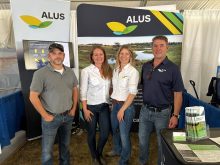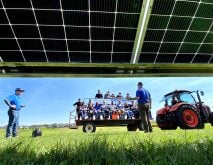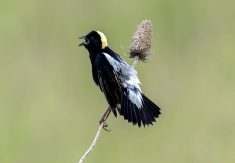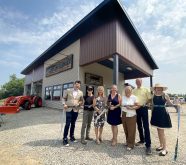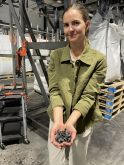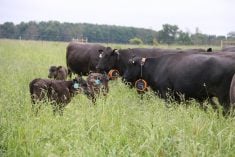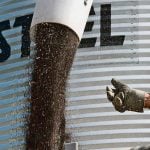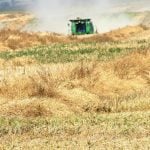Senators soiled their undies for science and dug into soil research at the Soil Health Interpretive Centre in Elora on April 25.
“We’re seeing important work that happens on the ground, yesterday at the farm level and here at the university academic level,” said Senator Rob Black, chair of the Senate Committee on Agriculture and Forestry.
Why it matters: Understanding soils in Canada is important to understanding soil health, carbon sequestration and the basis for precision agriculture.
Read Also

FCC partners with major Toronto innovation hub
A FCC parntership with MaRS Discovery District aims to solve technology problems in food supply chains.
Senators completed a three-day fact-finding tour of farms, University of Guelph research centres and agriculture businesses, which they said provided insight into the value of research continuity, data sharing and extension.
“I’m thrilled with how passionate (Senate committee members) are about the study we’re undertaking,” said Black. “They’re very keen to better understand the issues, the concerns and the good stuff that’s happening.”

They hope to arrange similar tours in Alberta and Saskatchewan to fully understand the breadth of soil within agriculture and how climate and geography create practices unique to a region.
“It’s not a one-size-fits-all approach,” said Black. “What they’re doing here might not work in Saskatchewan and Alberta, but they’re doing something else. I think it’s important that my colleagues see that.”
Alberta Senator Paula Simons said an organics crop rotation that works well in Wallenstein, Ont., to maintain the nitrogen cycle and fight weeds, would be untenable in Alberta.
“It’s a really interesting opportunity to learn about the different strategies (needed),” said Simon. “Farming is all about knowing what your soil, your environment and your climate are like. There have to be tailored solutions to different biomes and ecosystems.”

Using online technology to connect with Canadian farmers nationwide is helpful but doesn’t replace the value of getting hands into the soil and speaking to farmers in person.
“It’s important for me as a prairie girl to see farming here (and) for me to show my colleagues from across the country how different farming and ranching are in Alberta, because we need this study to encompass the full diversity of Canada’s agricultural economy,” Simon said.
Senators have heard from 71 witnesses in 17 committee meetings, and Black anticipates many more before a report is available sometime in 2024.
During the tour, senators dug up a microbe-devoured pair of underwear before “planting” a new pair for the ongoing and interactive “Soil your Undies” project.
“Getting their hands into some soils and being able to visualize good management (is important),” said Kari Dunfield. “Elora soils (are) very unique, and it’s important that what we study here is carried across Canada to understand what practices can protect soils elsewhere.”

Dunfield, Canada research chair in environmental microbiology of agro-ecosystems, answered questions about how sustainable management practices affect the soil.
Yukon Senator Pat Duncan said permafrost would prohibit the practice in Whitehorse but might be possible in Dawson City, where the influence of the Pacific Ocean, climate change and non-glaciated soil makes it possible to grow Brussels sprouts and apples.
“We’re not producing bushels and bushels of apples, but we are growing crops, and there’s a difference in the crops,” she said, adding that Yukon-produced milk is now on grocery shelves.
Duncan said the tour emphasized the potential for additional research and the importance of sharing soil knowledge nationally.
Claudia Wagner-Riddle, a professor with the University of Guelph’s School of Environmental Sciences, said investment in soil science is a key point for the report, whether it involves university studies, applied research or investment in infrastructure.
“We also gain a lot from the exchange between organizations in terms of the basic knowledge of soils … like what drives the process, what makes soils function,” she said. “We know a lot, but there’s also so much to discover because it’s such a complex system with the microbes, the minerals, the organic matter and how all of that interacts.”
In addition to her research on mitigating agriculturally produced greenhouse gas emissions, Wagner-Riddle is part of CREATE Climate-Smart Soils, the first multi-institutional soil-centred program that trains personnel to lead Canada’s agri-food sector.





